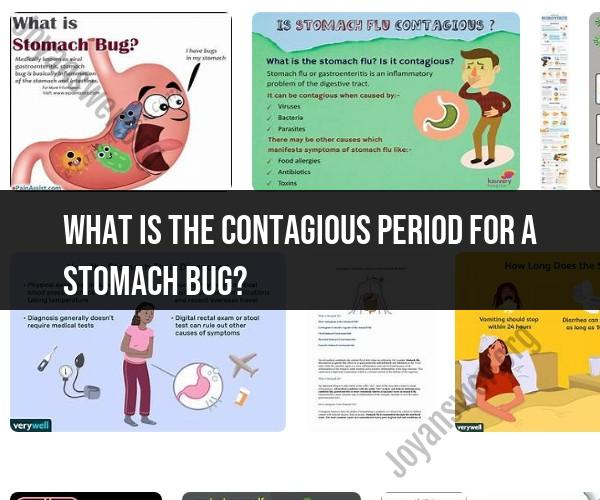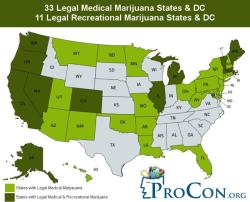What is the Contagious period for a stomach bug?
The contagious period for a stomach bug, such as one caused by norovirus or rotavirus, can vary depending on the specific virus and individual circumstances. Generally, people infected with a stomach bug can be contagious during the following periods:
Before Symptoms Begin: Many stomach bugs are contagious even before symptoms appear. This means an infected person can spread the virus to others before they realize they are sick. This pre-symptomatic period can last for a day or more, depending on the virus.
During the Illness: People with a stomach bug are typically most contagious while they are experiencing symptoms, including vomiting and diarrhea. The virus is often present in high concentrations in vomit and stool. Contagiousness during this period can last from a few days to a week or more, depending on the individual and the virus.
After Symptoms Resolve: Some people may continue to shed the virus in their stool for several days or even weeks after their symptoms have resolved. This post-symptomatic shedding can make them contagious to others during this period.
It's important to note that different stomach viruses have varying contagious periods, and some are more contagious than others. For example, norovirus is highly contagious and can spread easily in crowded or close-contact settings like schools, cruise ships, and healthcare facilities. Rotavirus, another common cause of stomach bugs, is also highly contagious, especially among young children.
To prevent the spread of stomach bugs, it's essential to practice good hygiene and follow these guidelines:
Handwashing: Wash your hands thoroughly with soap and water, especially after using the restroom, changing diapers, and before preparing or consuming food.
Isolation: If you or someone in your household has a stomach bug, try to isolate the infected person to prevent the spread of the virus to others. Avoid sharing towels, utensils, and other personal items.
Cleaning and Disinfecting: Clean and disinfect surfaces and objects that may be contaminated with the virus, especially in bathrooms and kitchens.
Stay Home: If you are sick with a stomach bug, it's best to stay home from work, school, or social gatherings until you are no longer contagious to prevent spreading the virus to others.
Stay Hydrated: If you have a stomach bug, it's important to stay hydrated to avoid dehydration, especially in cases of vomiting and diarrhea. Rehydration solutions can be helpful.
If you suspect you have a stomach bug or have been in close contact with someone who does, consult a healthcare professional for guidance on managing your symptoms and preventing the spread of the virus to others.
Understanding the Contagious Period of Stomach Bugs
Stomach bugs, also known as gastroenteritis, are common infections that can cause vomiting, diarrhea, and other abdominal symptoms. They are caused by a variety of viruses, bacteria, and parasites.
The contagious period of a stomach bug varies depending on the type of infection. However, most stomach bugs are contagious from the moment you start experiencing symptoms until at least 3 days after you recover. Some stomach bugs, such as norovirus, can be contagious for up to 7 days after you recover.
How Long Can You Spread a Stomach Bug to Others?
The length of time you can spread a stomach bug to others depends on the type of infection and how sick you are. Some people may be more contagious than others.
Here are some general guidelines for how long you can spread a stomach bug to others:
- Norovirus: Norovirus is the most common cause of stomach flu in adults. It is highly contagious and can be spread for up to 7 days after you recover.
- Rotavirus: Rotavirus is the most common cause of severe diarrhea in young children. It is contagious for up to 2 weeks after you recover.
- Salmonella: Salmonella is a type of bacteria that can cause food poisoning. It is contagious for as long as the bacteria are present in your stool.
- Campylobacter: Campylobacter is another type of bacteria that can cause food poisoning. It is contagious for as long as the bacteria are present in your stool.
Preventing Stomach Bug Transmission: Best Practices
There are a number of things you can do to prevent the spread of stomach bugs, including:
- Wash your hands frequently with soap and water. This is the best way to prevent the spread of stomach bugs.
- Clean and disinfect surfaces that have been contaminated with vomit or diarrhea. Norovirus can survive on surfaces for several days, so it is important to clean and disinfect any surfaces that have been contaminated to prevent the spread of the virus.
- Avoid preparing food or handling dishes if you are sick.
- Stay home from work or school until you are symptom-free for at least 2 days. This will help to prevent the spread of the virus to others.
If you have a stomach bug, it is important to stay hydrated and get plenty of rest. Most people recover from stomach bugs within a few days. However, if you have any concerns or if your symptoms do not improve, see a doctor.
By following these tips, you can help to prevent the spread of stomach bugs and protect yourself and others from getting sick.













